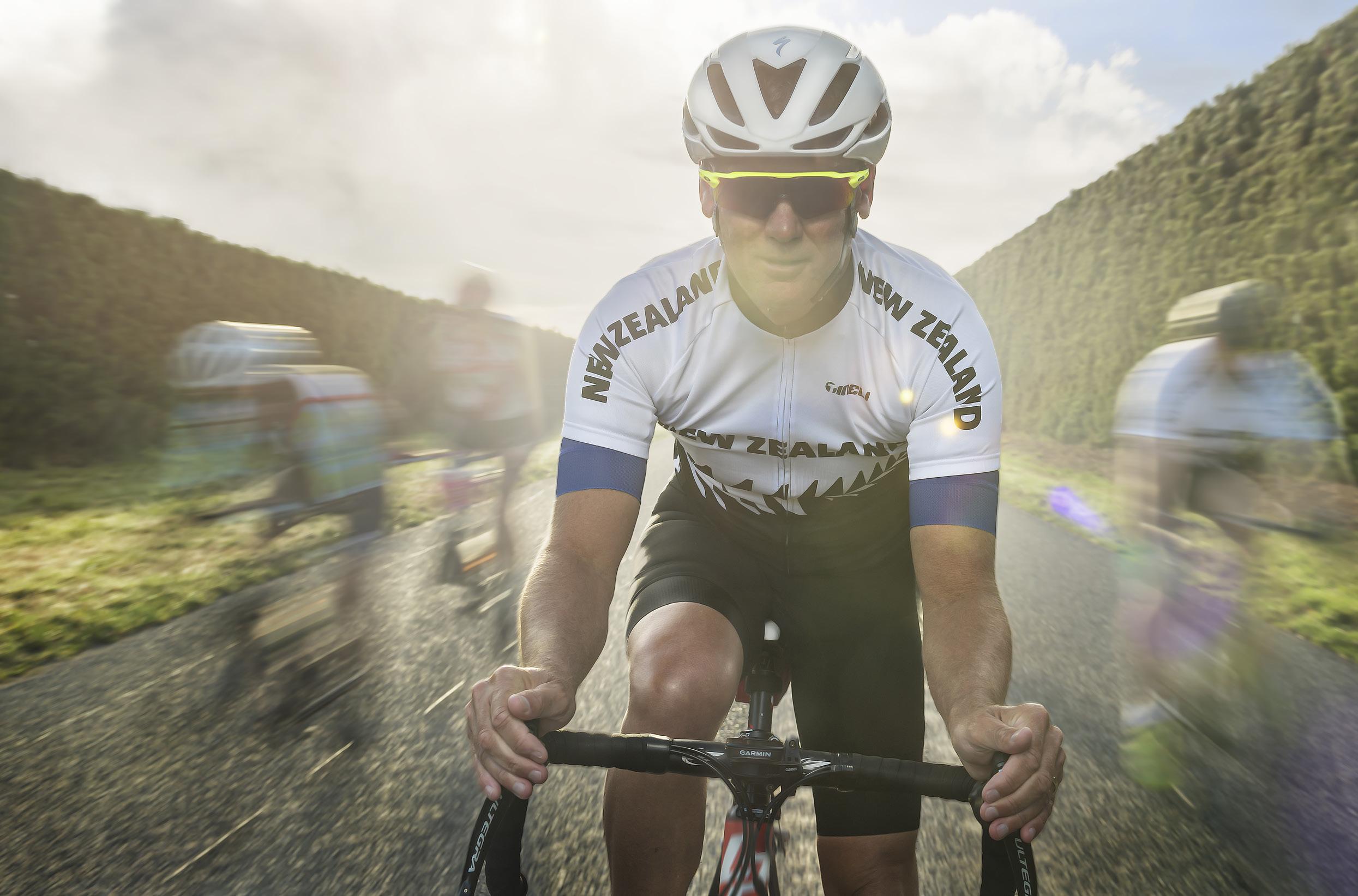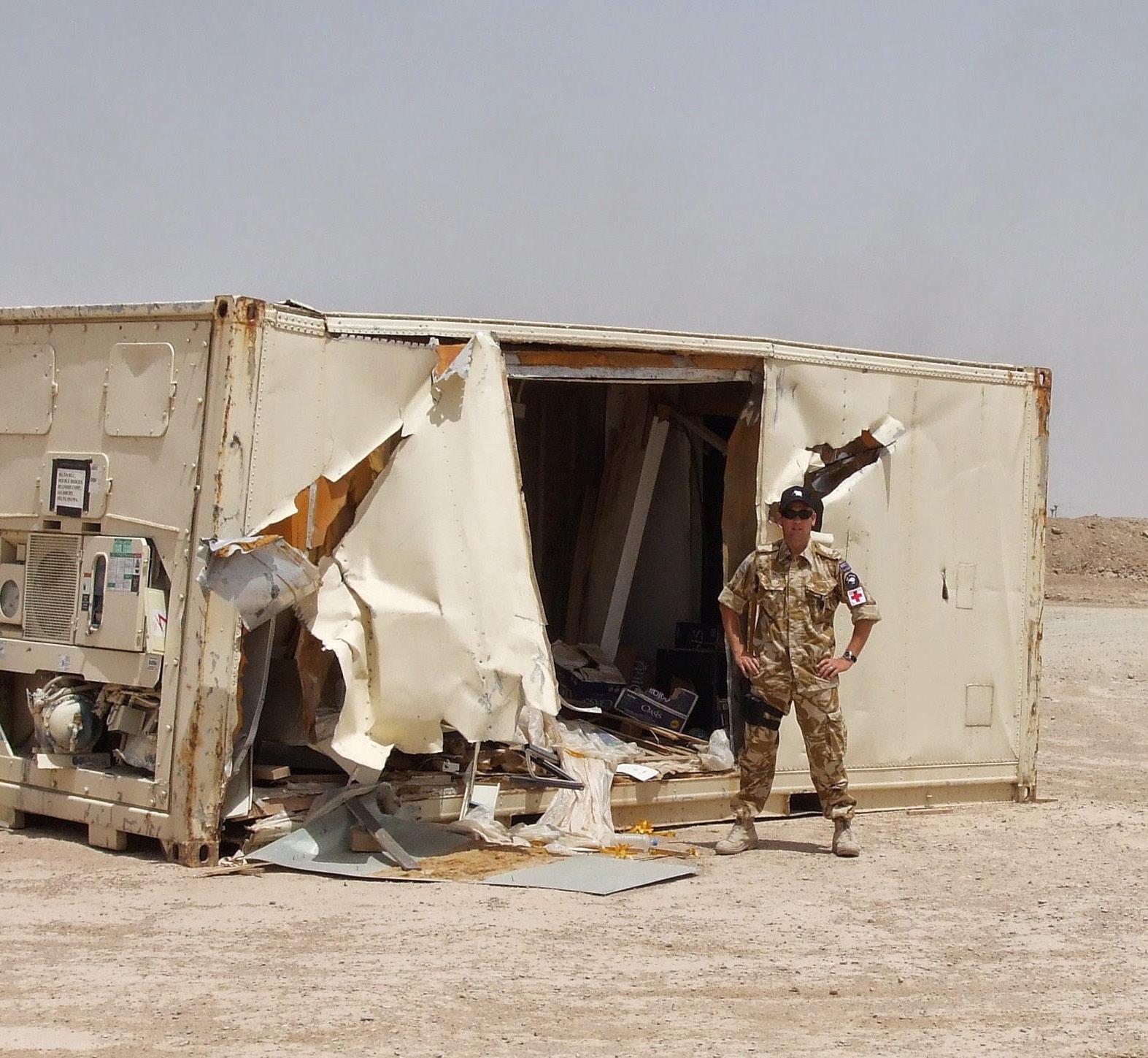
6 minute read
Invictus Games and the scars of Kandahar
In 2008 former New Zealand Army Radiographer Major Soren Hall was deployed to the largest trauma hospital in Afghanistan, at Kandahar Airfield.
There he dealt with traumatic (degloving, partial and total) amputations, ballistic and blast shrapnel injuries. Casualties would arrive almost every day, day and night.
“In some mass casualty situations, all eight trauma bays would be utilised. This required quick thinking to ensure that all the images were taken in a timely manner, before the casualty was either taken into the CT scanner for further imaging, or the operating theatre for life saving or preserving surgery,” said Soren.
“The endless stream of casualties, plus the consistent rocket attacks into the camp, is why I sought help from a British psychology nurse at the time of my deployment. That assisted me to normalise what I was feeling and it helped for a short period of time.
“I was in a war zone, there were a lot of people doing it way harder than me.
So, I just pushed all that stuff down,” he said.
Towards the end of his deployment, he would actively avoid looking at the faces of the casualties, as he felt this would lessen their physical and mental impact on him.
On returning to New Zealand, Soren was debriefed. “I had learnt to push down what I was feeling and was unaware at that time what the long term impact was going to be on myself, and also my family. I believe now that due to the nature of my deployment and the type of debrief that I was given, that an opportunity was lost to pick things up at an important time.” Soren buried himself in work, but he was breaking down. He found himself sitting in front of his computer not being able to focus due to flashbacks. He was feeling anxious and on edge. At home he was crying a lot, irritable, had a short fuse, and had problems sleeping.
Soren sought help on two occasions. However, each time he downplayed the impact of his deployment.
“The problem with seeking help is that you are taking time away from work, which means you have less time to complete your tasks. I can recall sitting in these sessions, thinking about work rather than my own issues. Part of this is my own fault, as I downplayed with command and my doctor, the impact that this was having on me. This was due to a fear of losing my job.
“Right up until my last day in uniform, a part of me was still in Afghanistan. This impacted every decision and conversation that I had. In my mind this made me a more focused Officer, as I was always preparing for the next Kandahar, or similar mission.
“However, the toll that this was having on me was slowly getting worse and heavier as the years went by,” he said. Soren moved away from clinical work, as he didn’t have the strength to go back into a hospital setting, due to the many triggers he experienced in that environment.
“Anxiety and paranoia were starting to consume me in those final years in uniform. The final straw was seeing my behaviour being mirrored in my children. I felt I was able to carry this, but my children didn’t need to be burdened with it.”
With support from Veterans’ Affairs Soren was diagnosed with PTSD. Despite this diagnosis he admits he still didn’t want to talk about it.
“Using avoidance, I left the Army [in 2021], we moved to Tauranga, far away from the Army and Defence and any triggers. This worked for a few months. I was away from the Army, but I was also away from my support networks, friends and I didn’t leave my ‘head’ behind.
“From mid-2022 I started to go downhill, I reached out to Veterans’ Affairs to a chat with an old friend and former colleague, this ended up being a turning point for me. Treatment started soon after which was incredibly challenging, confronting and mentally the hardest thing I have ever done.
“I certainly wasn’t the same person at home that I was at work. I am so incredibly lucky that my wife and my family has stuck by me,” Soren says. The scars of Kandahar still impact his life, but the effects are less after the treatment. While talking about his PTSD is still difficult, Soren wants to encourage others to come forward.
“As I was pushing my injury down and downplaying the impact for so long, it took almost a year of treatment to work through all the triggers and events. Not having to worry about work, and the support from my wife are the two things that have got me on the road to recovery.”
Sport has been another tool in his recovery.
“I am primarily a cyclist, but I haven’t raced a lot in the past 15 years due to negative thoughts and anxiety while within a bunch of cyclists. I had tried to race a couple of times however, the anxiety and negative thoughts forced me to pull out.” Recently in April, Soren successfully completed a five-day Tour of New Zealand cycle race of more than 500km in the South Island, fundraising for a variety of Kiwi charities. Soren will compete in the 2023 Invictus Games in Düsseldorf, Germany this September.
He wants people to get the message from his journey to the Games, that veterans aren’t always ‘living the dream’ and that sometimes they’re having a hard time.
“I was living with my injury for 15 years while in uniform. No one ever said anything to me, I often wonder if I was a good actor, or people were too scared to ask.”
Soren expects the Games could be very confronting.
“I imagine I will run into veterans who came through the hospital during my tour.
“I want to show that I am not broken to myself and my family. This will also act as therapy as I will be meeting other injured veterans, some with similar injuries to the ones that I worked on during my time in Kandahar.”

“We didn’t get to see or hear what happened to the casualties once they left our facility. Seeing how I cope being surrounded by people with combat injuries will be the biggest test for me.
“Success for me at the Games, is being able to function day-to-day, while remaining in a good head space. Medals would be awesome, but working towards a better life, will be even better,” he said.
Soren will compete in athletics, cycling, swimming and rowing at the Games.










